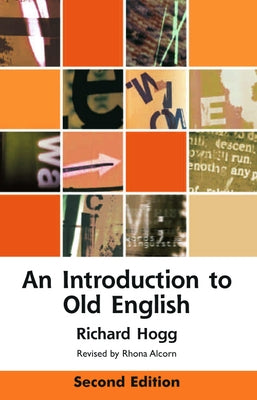1
/
of
1
Edinburgh University Press
An Introduction to Old English
An Introduction to Old English
Regular price
$44.72 USD
Regular price
Sale price
$44.72 USD
Shipping calculated at checkout.
Quantity
Couldn't load pickup availability
An accessible overview of the first centuries in the history of the English languageCombining a wide variety of short texts with a coherent and up-to-date assessment of the forms of language which remain as the foundation of English today, this introduction offers a unique study of Old English in context. It is designed for students unfamiliar with the earliest stages of the English language and provides a basis for further study of the history of the language to the present day. All the basic elements of Old English are covered, including nouns, adjectives, verbs, syntax, word order, vocabulary and sound values. Wherever possible comparisons are drawn between Old English and the present-day language, but also with other related languages such as Dutch, German and French. There are also chapters introducing Old English poetry and dialect variation, as well as a chapter looking at what happened to the language after the Norman Conquest. Key Features* Up-to-date account of the linguistics of the Old English period with particular stress on syntax and vocabulary * Integrates accounts of the language with selected texts graded to improve accessibility for the beginner* Strong emphasis on the relation between Old English and present-day English together with relevant features in related languages* Contains exercises, a glossary of key terms and an Old English glossaryKEYWORDS: Old English, history of English, grammar, strong verb, weak verb, morphology
Author: Richard Hogg
Publisher: Edinburgh University Press
Published: 01/17/2012
Pages: 176
Binding Type: Paperback
Weight: 0.45lbs
Size: 8.40h x 5.40w x 0.40d
ISBN: 9780748642380
Author: Richard Hogg
Publisher: Edinburgh University Press
Published: 01/17/2012
Pages: 176
Binding Type: Paperback
Weight: 0.45lbs
Size: 8.40h x 5.40w x 0.40d
ISBN: 9780748642380
About the Author
Richard Hogg was formerly Smith Professor of English Language and Medieval Literature at the University of Manchester.
Rhona Alcorn is an Honorary Research Fellow at the University of Edinburgh and CEO of Scots Language Dictionaries Ltd. She is also Deputy Director of the Angus McIntosh Centre for Historical Linguistics. She was the first receipient of the Richard M. Hogg Prize, awarded annually by the International Society for the Linguistics of English since 2008.
Share


